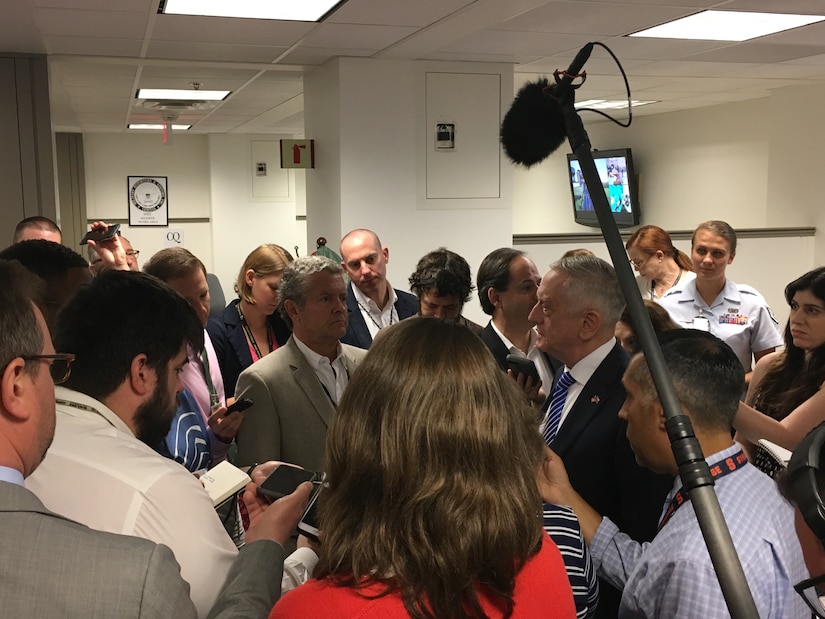By Terri Moon Cronk, DoD News, Defense Media Activity
WASHINGTON -- Reopening communications at the top line
between the United States and nations such as Russia is essential in solving
disagreements, Defense Secretary James N. Mattis told Pentagon reporters today.
“Based on my long-standing stance on protecting America --
whether it be from a conventional attack, nuclear attack, cyberattack -- I have
always been in favor, and in fact, promoted the idea that we talk with one
another … even when [the United States and Russia] had nuclear missiles pointed
at each other,” the secretary said.
“Even in the worse days of the Cold War, we had
heads-of-state discussions and I believe we’ve been way overdue for that,” he
added. “And this isn’t about this administration; this goes back years, many
years.”
Mattis said such communications might not be easy or short
term, “but I find nothing inconsistent in protecting this country by engaging
diplomatically,” he said. “I’ve always said diplomacy leads our foreign policy.
This is diplomacy in action.”
The secretary confirmed that he is considering meeting with
his Russian counterpart, but added no decision has yet been made.
Iran
Mattis also talked about the Iranian government’s malign
influence in the Middle East, and its threats to close the Strait of Hormuz.
“They’ve done that in years past; they saw the international
community put dozens of nations’ naval forces in for exercises to clear the
strait,” the secretary said. “Clearly, this [closure] would be an attack on
international shipping and could have an international response to reopen the
shipping lanes … because the world’s economy depends on those energy supplies
flowing out of there.”
Iran, he noted, must start living by international rules.
“They are the exporter of instability across the region,”
the secretary said.
Korean War Remains Repatriation
With 55 cases of reported U.S. service members’ remains
being returned to the United States today from North Korea, Mattis emphasized
the importance of giving the families of the fallen a sense of closure.
“When [the families] got the telegram, they have never had
closure. They’ve never had the bodies returned,” he said. “So, what we’re
seeing here is an opportunity to give those families closure, to make certain
that we continue to look for those remaining.”
Mattis said each of the boxes of remains returned today bore
a blue U.N. flag.
“Many of the U.N. nations also have missing [service
members] -- we don’t know who’s in those boxes. As we discover it, they’ll be
returned,” the secretary said, adding that nations such as Australia and France
also have missing service members in Korea.
“This is an international effort to bring closure to those
families,” Mattis said. “Obviously, we want to continue this sort of
humanitarian effort.”
He added, “We also look at [the return of remains] as a
first step of a restarted process, so we want to explore additional efforts to
bring others home; perhaps have our own teams go in [to North Korea]. So we’re
looking at all [opportunities].”









No comments:
Post a Comment